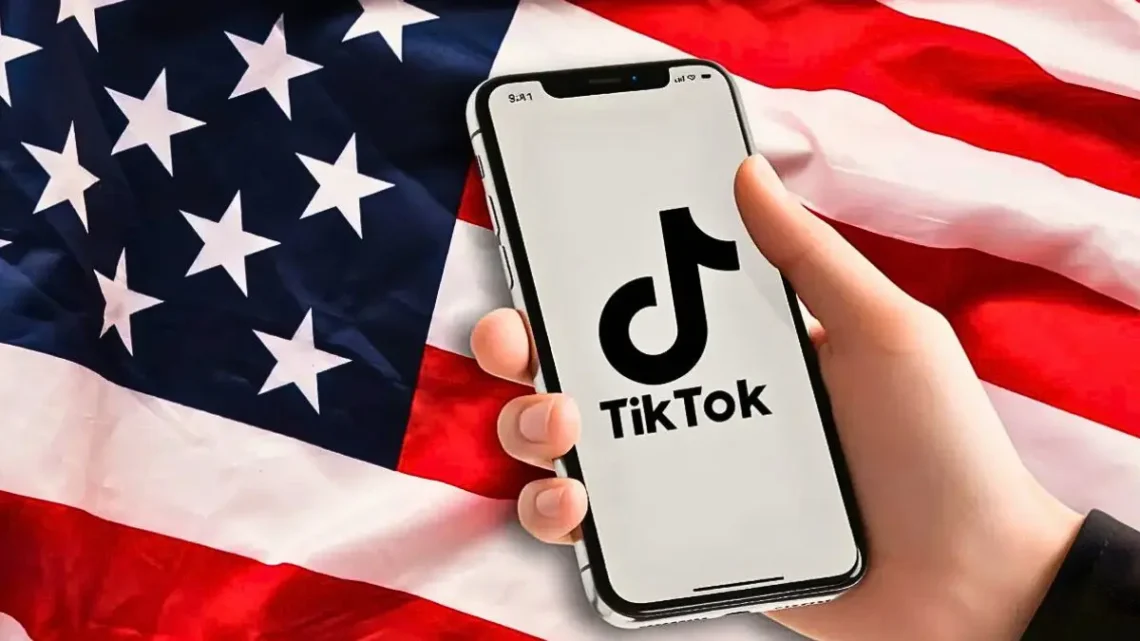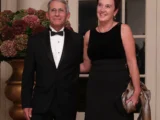
Amazon and OnlyFans Founder Vie for TikTok Amid Looming U.S. Ban Deadline
With just two days left before a U.S. ownership-ban deadline, Amazon and a consortium led by OnlyFans founder Tim Stokely have emerged as the latest bidders for TikTok.
The short-video app, owned by Chinese company ByteDance, faces a potential shutdown in the U.S. on April 5, 2025, unless it is sold to a non-Chinese owner. This latest development adds to the ongoing uncertainty surrounding TikTok’s future, fueled by national security concerns and regulatory hurdles.
Trending Now!!:
The deadline stems from an April 2024 law signed by then-President Joe Biden, requiring ByteDance to divest TikTok’s U.S. operations or face a nationwide ban. U.S. officials have long argued that ByteDance’s ties to China pose a security threat, raising fears of data access and algorithmic manipulation by the Chinese government.
ByteDance and TikTok have consistently denied these claims, but the Supreme Court upheld the law’s constitutionality on January 17, 2025, paving the way for its enforcement. Initially set to take effect on January 19, 2025, the ban was delayed when President Donald Trump signed an executive order on January 20, granting TikTok a 75-day reprieve to allow for a potential sale. Trump, who has expressed interest in keeping TikTok operational in the U.S., extended the deadline to April 5.
As the deadline nears, Amazon and Stokely’s consortium have entered the bidding fray alongside several other potential buyers. Amazon’s bid, submitted on April 2, was sent in a letter to Vice President JD Vance and Commerce Secretary Howard Lutnick. The tech giant’s interest is seen as a strategic move to expand its footprint in social media and capitalize on TikTok’s e-commerce potential. However, reports suggest White House insiders are skeptical about Amazon’s last-minute bid.
Stokely, meanwhile, has partnered with the Hbar Foundation, a cryptocurrency group managing the Hedera network, to submit a bid through his startup Zoop. Unlike OnlyFans, Zoop is positioned as a mainstream platform that rewards creators for engagement. Backed by undisclosed U.S. investors, Stokely’s group envisions transforming TikTok into a creator-focused platform. Zoop co-founder RJ Phillips described their bid as an effort to establish a “new paradigm” where creators and communities benefit from the value they generate.
Amazon and Stokely join a growing list of potential buyers. Frank McCourt and Kevin O’Leary lead the “People’s Bid for TikTok,” a $20 billion proposal aiming to rebuild the platform with a new algorithm and reduced data collection, backed by Reddit co-founder Alexis Ohanian. YouTube star MrBeast (Jimmy Donaldson) and Employer.com founder Jesse Tinsley have submitted a bid exceeding $30 billion, advocating for a solution that balances national security concerns with TikTok’s continued operation.
Oracle, a previous contender in 2020, is reportedly working with venture capital firm Andreessen Horowitz on a bid to carve out TikTok’s U.S. operations, ensuring Chinese ownership falls below the required 20% threshold. Blackstone is exploring a minority investment alongside ByteDance’s non-Chinese shareholders, while AI search startup Perplexity AI has proposed a merger focused on transparency and AI-driven innovation. Microsoft, Walmart, and conservative video platform Rumble have also been linked to TikTok but have not made formal bids recently.
The Trump administration has taken an active role in the sale process, with Vice President JD Vance leading negotiations alongside Commerce Secretary Lutnick and National Security Adviser Michael Waltz. Donald Trump himself has described the situation as “tremendous,” asserting that the final decision will be his.
He has floated unconventional proposals, including a U.S. sovereign wealth fund acquiring a 50% stake in TikTok or adjusting tariffs on Chinese imports to encourage Beijing’s approval of a sale. These ideas have drawn skepticism but reflect Trump’s shift from his first term—when he sought to ban TikTok—to his current stance of preserving the platform, which he credits with helping him connect with young voters in the 2024 election.
Despite the influx of bids, major obstacles remain. ByteDance has not signaled a willingness to sell, and any deal would require approval from the Chinese government, which has previously condemned U.S. divestment efforts as a “robbers’ act.” However, recent statements from China’s Foreign Ministry suggest a potentially softened stance, with spokesperson Mao Ning stating in January that business decisions should adhere to “market principles” while complying with Chinese laws.
Another key issue is the fate of TikTok’s algorithm, a crucial factor in the app’s success. Any sale must ensure that ByteDance’s stake in a new U.S.-based TikTok entity falls below 20%. Even if a deal is finalized, Trump has indicated he may extend the deadline again, stating in March that he would “probably” allow more time if needed. Vice President Vance, however, has expressed a preference to finalize the sale without further delays.
Trump is scheduled to meet with advisers on April 2 to evaluate the bids and determine the next steps. With just days remaining, the outcome of these discussions will determine whether TikTok remains in the U.S., transitions to new ownership, or faces a ban that could disrupt the app’s 170 million American users.


